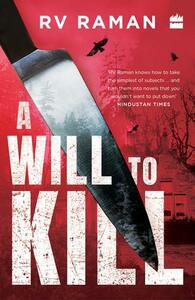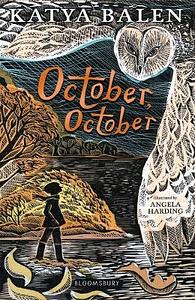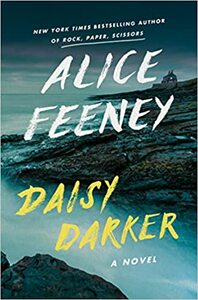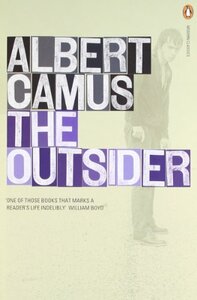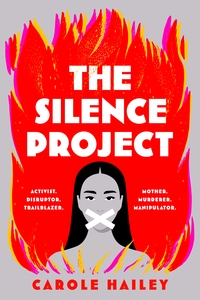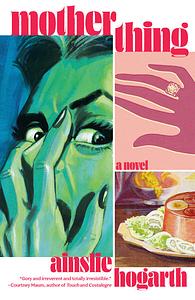Take a photo of a barcode or cover
_askthebookbug's Reviews (1.34k)
A Will to Kill is an interesting whodunnit that is set in the hills of Ooty. In many ways it reminded me of Bhaskar Chattopadhyay’s Penumbra. A bunch of people cooped up in a bungalow, a cloud of suspicion hanging on each of their heads as a murder mystery is being investigated. The protagonist, Harith Athreya is a man with quick mind and polite manner and I liked him instantly. The story is fast paced and extremely well narrated, making it very hard to put the book down. It had been a while since I last enjoyed a murder mystery and this one turned out be exactly what I needed.
The infamous Bhaskar Fernandez invites Athreya to his Greybrooke manor for a party he hosts for 12 other guests. The wheelchair bound Bhaskar writes two wills, each to be used depending on the circumstances of his future death. When all 13 guests are trapped in the manor due to a landslide for a couple of days, a murder occurs and Athreya sets out to solve it.
The story is somewhat predictable until it’s not. Suspense lurks around like a shadow and one can’t help but let their thoughts whir around trying to pinpoint the murderer. I enjoyed this one thoroughly and gobbled it up in a couple of sittings. Raman writes crisply, not deviating from the plot.
I recommend this highly especially for those who are willing to give Indian authors a shot when it comes to nailing whodunnit so seamlessly.
The infamous Bhaskar Fernandez invites Athreya to his Greybrooke manor for a party he hosts for 12 other guests. The wheelchair bound Bhaskar writes two wills, each to be used depending on the circumstances of his future death. When all 13 guests are trapped in the manor due to a landslide for a couple of days, a murder occurs and Athreya sets out to solve it.
The story is somewhat predictable until it’s not. Suspense lurks around like a shadow and one can’t help but let their thoughts whir around trying to pinpoint the murderer. I enjoyed this one thoroughly and gobbled it up in a couple of sittings. Raman writes crisply, not deviating from the plot.
I recommend this highly especially for those who are willing to give Indian authors a shot when it comes to nailing whodunnit so seamlessly.
There’s a girl who grows up in the wild amidst tangled trees, freezing lakes and clear skies. And when October comes, she dives into the freezing water with her father and eats roasted potatoes from the edge of sticks. October is her favourite month of the year and also because that’s her name. October, October is the story of a eleven year old girl who suddenly finds herself under the glaring lights of London, far away from the comforts of her woods. She’s terrified, furious and very very lost.
Katya brings to us a story of a young girl who knows nothing about the outside world. She adores her father and then later, her pet owl. She climbs trees, plants them and cuts them to let them grow gloriously and she wants nothing else. But when tragedy visits, she is thrusted into the harsh world of the city where she knows no one. This little girl is weighed down by many emotions when she is forced to live with a woman who calls herself her mother. As October navigates through her life in a completely strange world, she finds things that she hates and later the ones that she comes to like.
This tale made me feel so whole, a barrage of warmth and affection swirling in my heart towards all the characters. Written for middle graders, this book is every bit thoughtful and considerate. I read this in only two sittings, and at the end of it, this book felt like a warm embrace.
Katya brings to us a story of a young girl who knows nothing about the outside world. She adores her father and then later, her pet owl. She climbs trees, plants them and cuts them to let them grow gloriously and she wants nothing else. But when tragedy visits, she is thrusted into the harsh world of the city where she knows no one. This little girl is weighed down by many emotions when she is forced to live with a woman who calls herself her mother. As October navigates through her life in a completely strange world, she finds things that she hates and later the ones that she comes to like.
This tale made me feel so whole, a barrage of warmth and affection swirling in my heart towards all the characters. Written for middle graders, this book is every bit thoughtful and considerate. I read this in only two sittings, and at the end of it, this book felt like a warm embrace.
The story of Daisy Darker begins exactly how it’s supposed to. We see the protagonist revisiting her grandmother’s place before things change forever. Seaglass is an eccentric house sitting on the banks of a tiny tidal island. Everyday during the high tide, Seaglass gets cut off from the rest of humanity. And when the Darker family gathers to celebrate Nana’s 80th birthday, they are stranded for a night. And that is when the murders begin.
We learn about the dysfunctional Darker family. The father who is always absent, a mother who is self obsessed, two sisters - one vain and both cruel. Daisy, her niece and Nana are the only ones who end up with a good head on their shoulders. When the murders begin, everyone is baffled by the sequence and motive. With no help from the outside world, the family is left to unmask the killer.
Daisy Darker starts off fantastic, with a setting that’s perfect for a murder mystery. But soon, you see a pattern developing and there’s predictability here and there. The thing that bothered me the most was the ending. It left me baffled but not entirely in a positive way. Alice’s writing is what manages to redeem the novel to some extent. She writes sharply and with wit.
If you’re looking for a classic whodunnit and enjoy the buildup, then this may work for you.
We learn about the dysfunctional Darker family. The father who is always absent, a mother who is self obsessed, two sisters - one vain and both cruel. Daisy, her niece and Nana are the only ones who end up with a good head on their shoulders. When the murders begin, everyone is baffled by the sequence and motive. With no help from the outside world, the family is left to unmask the killer.
Daisy Darker starts off fantastic, with a setting that’s perfect for a murder mystery. But soon, you see a pattern developing and there’s predictability here and there. The thing that bothered me the most was the ending. It left me baffled but not entirely in a positive way. Alice’s writing is what manages to redeem the novel to some extent. She writes sharply and with wit.
If you’re looking for a classic whodunnit and enjoy the buildup, then this may work for you.
I don’t think there has ever been a novel by TJR that I haven’t liked or loved so far. From Daisy Jones to Carrie Soto, I’ve loved all of her protagonists. There’s something about the way she writes that sets apart her stories from that of everyone else’s. And Carrie Soto is Back was no different. You find yourself rooting for the women who find themselves very much alone because they’re too brash or honest. And you can’t help but get consumed by their ambition. TJR writes so well that you find yourself amidst all the drama. And that is how I imagined myself cheering for Carrie while she went on to become the greatest tennis player to ever exist.
Soto, aged 37 decides to come out of her retirement to reclaim her old record of holding the most grand slam titles. Her body is no longer agile and young as what it used to be but with her father Javier by her side, she is sure she can win again. We see a woman dead set on rising like the phoenix against all odds to take what she wants. But this is more than just a sports book. We see the intense and wonderful relationship she shares with her father/coach. We witness the dedication it takes for someone to become an athlete. And then we see Soto’s other side where she never slips an emotion. They call her the Battleaxe, a formidable warrior.
It has now become TJR’s classic style to write about complicated women who carry layers of baggage. Their behaviour is always a mystery to the crowd, hence turning her into an Ice Queen. I don’t think I’ve had this much fun while reading a book lately and it’s always been the case with her books.
Carrie Soto is Back is everything I had hoped it to be and so much more. What a powerful book, one that’d always recommend.
Soto, aged 37 decides to come out of her retirement to reclaim her old record of holding the most grand slam titles. Her body is no longer agile and young as what it used to be but with her father Javier by her side, she is sure she can win again. We see a woman dead set on rising like the phoenix against all odds to take what she wants. But this is more than just a sports book. We see the intense and wonderful relationship she shares with her father/coach. We witness the dedication it takes for someone to become an athlete. And then we see Soto’s other side where she never slips an emotion. They call her the Battleaxe, a formidable warrior.
It has now become TJR’s classic style to write about complicated women who carry layers of baggage. Their behaviour is always a mystery to the crowd, hence turning her into an Ice Queen. I don’t think I’ve had this much fun while reading a book lately and it’s always been the case with her books.
Carrie Soto is Back is everything I had hoped it to be and so much more. What a powerful book, one that’d always recommend.
The Bellboy by Anees Salim opens on an ominous note. “As they would go to a holy city to die, people came to Paradise Lodge to end their lives.” Thus begins the story of this dilapidated building which has death written all over it and the young Bellboy who happens to work there. Latif, a lad just shy of being 18 likes to dream all day but his mother’s calloused fingers and his father’s death has pushed him to seek this job. And on the very first day of his new job, he watches death up close.
Latif, with his curls sitting neatly atop his ears and his penciled in moustache lives in a sinking Manto island with his mother and two sisters. He doesn’t have friends and so tries to befriend one at the lodge by constructing an imaginary character who happens to be a braver and adventurous version of him. Latif carries secrets within himself like how the manager steals things from the dead and how he has desires that sometimes threatens to explode. And yet trouble keeps finding Latif until the very end of the book.
Latif’s character generates sympathy in the hearts of the readers perhaps this is why the climax of the novel must have taken everyone by shock. The story carries a certain tinge of melancholy to it, coupled with steep observations made by the protagonist. I read in an interview that Anees Salim created Latif from his own experience of knowing such people in real life. No wonder there was certain honesty in his role. A neurodivergent person struggling to gather his bearings in this cruel world.
Although I hadn’t read Anees’s works before, I sense this familiarity in his words. The Bellboy may very well go on to collect few accolades next year and I’ll be cheering on for it.
An absolute brilliant and heartbreaking piece of literature.
Latif, with his curls sitting neatly atop his ears and his penciled in moustache lives in a sinking Manto island with his mother and two sisters. He doesn’t have friends and so tries to befriend one at the lodge by constructing an imaginary character who happens to be a braver and adventurous version of him. Latif carries secrets within himself like how the manager steals things from the dead and how he has desires that sometimes threatens to explode. And yet trouble keeps finding Latif until the very end of the book.
Latif’s character generates sympathy in the hearts of the readers perhaps this is why the climax of the novel must have taken everyone by shock. The story carries a certain tinge of melancholy to it, coupled with steep observations made by the protagonist. I read in an interview that Anees Salim created Latif from his own experience of knowing such people in real life. No wonder there was certain honesty in his role. A neurodivergent person struggling to gather his bearings in this cruel world.
Although I hadn’t read Anees’s works before, I sense this familiarity in his words. The Bellboy may very well go on to collect few accolades next year and I’ll be cheering on for it.
An absolute brilliant and heartbreaking piece of literature.
The Outsider.
~
First published in 1942, The Outsider is a really strange book. The opening lines are as such "Mother died today. Or maybe yesterday ; I can't be sure. The telegram from the Home says : YOUR MOTHER PASSED AWAY. FUNERAL TOMORROW. DEEP SYMPATHY." My very first read by Albert Camus turned out to be extremely enjoyable.
~
Meursault is a young man who is informed about his mother's death through a business-like telegram and so he sets out to perform funeral rites. Upon reaching the Home where he had his mother admitted to provide her proper care, he seems undisturbed. Meursault is a man devoid of feelings and emotions. As he walks through the funeral process, he seems to be worried about the heat and sun rather than mourning for his mother. He is so free of emotions that he even refuses to see his mother one last time.
~
His life goes on the same way as he continues to work unaffected and also finds a girlfriend, Marie. There are many instances where the author has made it evident that he is a man of few words and is usually straight to the point. When Marie asks him if he loves her, he bluntly says NO. And when she asks him to marry her, he says YES. Because he's of the opinion that such things don't matter. His feelings are complicated and his lack of empathy is a strange trait. He then goes ahead and murders an Arab man few days after his mother's death and his trail starts soon after.
~
The trial is mentioned in detail where he doesn't try to defend his actions. He merely accepts the fact that he has murdered a man and he did so because of the heat. He feels no remorse nor sadness as he's charged guilty. As he sits in the court during his proceeding, he zones in and out of arguments and rather finds himself observing the jury, press and others who are gathered. He simply accepts his fate and decides that one day everyone has to die and his turn is just early.
~
The Outsider is a unique book which might not be liked by many readers yet it has an underlying sense of understanding to it. I personally found it to be a very interesting read and also finished it in one sitting. The detail with which this book has been written is astounding.
~
Rating - 4
~
First published in 1942, The Outsider is a really strange book. The opening lines are as such "Mother died today. Or maybe yesterday ; I can't be sure. The telegram from the Home says : YOUR MOTHER PASSED AWAY. FUNERAL TOMORROW. DEEP SYMPATHY." My very first read by Albert Camus turned out to be extremely enjoyable.
~
Meursault is a young man who is informed about his mother's death through a business-like telegram and so he sets out to perform funeral rites. Upon reaching the Home where he had his mother admitted to provide her proper care, he seems undisturbed. Meursault is a man devoid of feelings and emotions. As he walks through the funeral process, he seems to be worried about the heat and sun rather than mourning for his mother. He is so free of emotions that he even refuses to see his mother one last time.
~
His life goes on the same way as he continues to work unaffected and also finds a girlfriend, Marie. There are many instances where the author has made it evident that he is a man of few words and is usually straight to the point. When Marie asks him if he loves her, he bluntly says NO. And when she asks him to marry her, he says YES. Because he's of the opinion that such things don't matter. His feelings are complicated and his lack of empathy is a strange trait. He then goes ahead and murders an Arab man few days after his mother's death and his trail starts soon after.
~
The trial is mentioned in detail where he doesn't try to defend his actions. He merely accepts the fact that he has murdered a man and he did so because of the heat. He feels no remorse nor sadness as he's charged guilty. As he sits in the court during his proceeding, he zones in and out of arguments and rather finds himself observing the jury, press and others who are gathered. He simply accepts his fate and decides that one day everyone has to die and his turn is just early.
~
The Outsider is a unique book which might not be liked by many readers yet it has an underlying sense of understanding to it. I personally found it to be a very interesting read and also finished it in one sitting. The detail with which this book has been written is astounding.
~
Rating - 4
It is with irrepressible difficulty I attempt to strictly review this book, for it is seemingly impossible to not write about the man whose biography this is. A man who was born an untouchable, who not only rose above the circumstances of his birth, but achieved a laudable level of success which would have been spectacular even for a child of privilege. As I began this book, I couldn’t help but develop a feeling of scepticism & let me explain you why : Mr Tharoor who authored ‘Why I am Hindu’ chose to write about a man who famously stated ‘I was born a Hindu but I shall not die one’. Nevertheless, I decided to plunge myself into his book which would eventually turn out to be a decent introduction to Dr BR Ambedkar’s life.
Mr Tharoor explains in a chronological manner how an insignificant infant scrabbling in the dust of Mhow in 1891 became the first law minister of free India. He graphically describes the atrocities he had to face, the indignations he has to endure and rose above all. Strictly speaking, this book would be an easy-go-to material for those who don’t have the time to dig deep about Dr BR Ambedkar, his beliefs or the complexities in the decisions he had to take but just a curtain raising introduction to his life & legacy. For me, that is all the book is.
Needless to say, it is a book by Shashi Tharoor and I had my share of insight as I flipped through the pages. I enjoyed reading about the man who stood staunchly against worshipping a person/ leader, yet ironically became an idol to generations to come.
It was most interesting to read about what his critics had to write about Ambedkar. Unpopular amongst the Congressmen, termed as a puppet of the British, the book made me realise that Ambedkar was a man who felt Freedom isn’t merely from foreign oppression but domestic too. Sadly no one, not Gandhi, not Nehru put their foot down in the favour of Dalits but for Ambedkar. Tharoor beautifully explains how Ambedkar, despite his failing health took years to draft a constitution which is now revered by many a country even today.
There’s one thing about the book which sticks out like a sore thumb : A chapter called - Ambedkar’s Four Flaws. Ambedkar’s negligence towards Adivasis, and excluding them from a part of democracy was something that shouldn’t have been snubbed as a chapter of few pages. It’s more than a flaw - a cardinal blunder. I wished Tharoor shed more light on Ambedkar’s ‘flaws’ the same way he glorified the latter. Notwithstanding the fact that Ambedkar was a man whose earnest efforts to uplift the Dalits cannot be described in words and the legacy he has left behind is a mountain of gold. But we all know that , don’t we?
Tharoor finishes his book with an elaborate note on why Ambedkarism is very much prevalent in the present times, and even times to come. He quotes the Dalit writers like Yashica Dutt & others to give the readers a glimpse of what it is to be born a Dalit today. When I flipped the last page of the book, I asked myself “Who was Ambedkar?”. Was he an excellent lawman? Was he a staunch protester for Dalits? Was he a prescient being who foresaw the turmoils which the young & free country might put herself into? He was all of the above and yet, his contribution to the nation & Dalits in particular cannot be summarised in a ‘concise’ 240 page book. Most certainly not in a review.
Mr Tharoor explains in a chronological manner how an insignificant infant scrabbling in the dust of Mhow in 1891 became the first law minister of free India. He graphically describes the atrocities he had to face, the indignations he has to endure and rose above all. Strictly speaking, this book would be an easy-go-to material for those who don’t have the time to dig deep about Dr BR Ambedkar, his beliefs or the complexities in the decisions he had to take but just a curtain raising introduction to his life & legacy. For me, that is all the book is.
Needless to say, it is a book by Shashi Tharoor and I had my share of insight as I flipped through the pages. I enjoyed reading about the man who stood staunchly against worshipping a person/ leader, yet ironically became an idol to generations to come.
It was most interesting to read about what his critics had to write about Ambedkar. Unpopular amongst the Congressmen, termed as a puppet of the British, the book made me realise that Ambedkar was a man who felt Freedom isn’t merely from foreign oppression but domestic too. Sadly no one, not Gandhi, not Nehru put their foot down in the favour of Dalits but for Ambedkar. Tharoor beautifully explains how Ambedkar, despite his failing health took years to draft a constitution which is now revered by many a country even today.
There’s one thing about the book which sticks out like a sore thumb : A chapter called - Ambedkar’s Four Flaws. Ambedkar’s negligence towards Adivasis, and excluding them from a part of democracy was something that shouldn’t have been snubbed as a chapter of few pages. It’s more than a flaw - a cardinal blunder. I wished Tharoor shed more light on Ambedkar’s ‘flaws’ the same way he glorified the latter. Notwithstanding the fact that Ambedkar was a man whose earnest efforts to uplift the Dalits cannot be described in words and the legacy he has left behind is a mountain of gold. But we all know that , don’t we?
Tharoor finishes his book with an elaborate note on why Ambedkarism is very much prevalent in the present times, and even times to come. He quotes the Dalit writers like Yashica Dutt & others to give the readers a glimpse of what it is to be born a Dalit today. When I flipped the last page of the book, I asked myself “Who was Ambedkar?”. Was he an excellent lawman? Was he a staunch protester for Dalits? Was he a prescient being who foresaw the turmoils which the young & free country might put herself into? He was all of the above and yet, his contribution to the nation & Dalits in particular cannot be summarised in a ‘concise’ 240 page book. Most certainly not in a review.
The Silence Project has a very interesting premise, one that really had my attention right from the start. When Emilia Morris is just thirteen, she watches her mother burn to death along with hundreds of others across the world. This baffling event has such an effect on people that no one could ever forget Rachel Chalkham, a phoenix who perished in fire. The book is divided into two parts. The first shows Emilia growing up witnessing her mother’s sudden change in behaviour where she forgoes everything and takes an oath of silence. The second, in which Emilia tries to understand the intricacies of the community that her mother created.
Emilia decides to write a book on her mother Rachel decades after she died. Rachel was a normal mom until Emilia turned 13 and suddenly she stops speaking. Before she realises, there are women joining her from all over the world in their attempt to tell the world to speak less and listen more. This silence that Rachel embraces becomes a powerful tool, which ultimately helps in building a community later on. Emilia watches her mother transform from being just her parent to a woman whom she cannot recognise anymore.
Years later, Emilia herself joins the community. Her life then branches out in various directions, the second half of the book covering her life as an adult.
I think the biggest aspect that didn’t work for me was how I couldn’t connect with the protagonist. A major chunk of the book seemed stretchy, making me want to skip a few chapters. In spite of a solid plot, I felt myself losing interest ever so often.
The Silence Project gets full points in terms of ideas, but on the whole it didn’t really work for me. My review may very well be on the unpopular side so if the premise appeals to you, go ahead and give it a shot :)
Emilia decides to write a book on her mother Rachel decades after she died. Rachel was a normal mom until Emilia turned 13 and suddenly she stops speaking. Before she realises, there are women joining her from all over the world in their attempt to tell the world to speak less and listen more. This silence that Rachel embraces becomes a powerful tool, which ultimately helps in building a community later on. Emilia watches her mother transform from being just her parent to a woman whom she cannot recognise anymore.
Years later, Emilia herself joins the community. Her life then branches out in various directions, the second half of the book covering her life as an adult.
I think the biggest aspect that didn’t work for me was how I couldn’t connect with the protagonist. A major chunk of the book seemed stretchy, making me want to skip a few chapters. In spite of a solid plot, I felt myself losing interest ever so often.
The Silence Project gets full points in terms of ideas, but on the whole it didn’t really work for me. My review may very well be on the unpopular side so if the premise appeals to you, go ahead and give it a shot :)
Motherthing is a bizarre book that feels more like a psychological thriller than a horror. There are quite a lot of odd things about the story but somehow it’s hard to not continue reading. The story begins with the protagonist’s mother-in-law being found with her wrists slit. Laura and her son Ralph have always shared a rather complicated relationship, with the former pulling strings. When Abby moves in to take care of Laura, she does so in the hopes of gaining a mother. But it doesn’t take much time for Abby to realise that Laura wants her son to herself.
After Laura commits suicide, Abby thinks she can finally move out of the house with Ralph and start a new life. But Laura’s spirit plants itself in the house, refusing to leave her son alone. While Ralph swims in grief, we see Abby losing her mind. Her past makes brief appearances in the story, showing how she has always found solace in a ‘Motherthing’ than in her mother. And so she tries to turn into one for Ralph. Her love is unconditional, wholesome and fierce.
As Abby sets on this mission to help her husband, she doesn’t realise her own self spiralling into the darkest depths of paranoia. And the climax is what takes the cake. There’s an ominous sense that hangs right from the start, one that’s unshakable.
Motherthing is a slow burn, one that works like quicksand. You won’t realise you’re sinking until it’s too late. I’m not a fan of horror genre but I strangely enjoyed reading this book.
After Laura commits suicide, Abby thinks she can finally move out of the house with Ralph and start a new life. But Laura’s spirit plants itself in the house, refusing to leave her son alone. While Ralph swims in grief, we see Abby losing her mind. Her past makes brief appearances in the story, showing how she has always found solace in a ‘Motherthing’ than in her mother. And so she tries to turn into one for Ralph. Her love is unconditional, wholesome and fierce.
As Abby sets on this mission to help her husband, she doesn’t realise her own self spiralling into the darkest depths of paranoia. And the climax is what takes the cake. There’s an ominous sense that hangs right from the start, one that’s unshakable.
Motherthing is a slow burn, one that works like quicksand. You won’t realise you’re sinking until it’s too late. I’m not a fan of horror genre but I strangely enjoyed reading this book.
